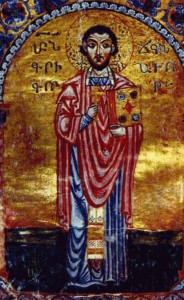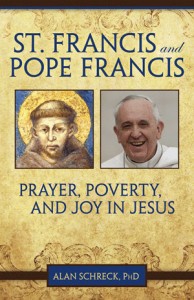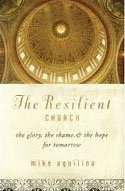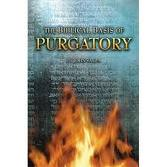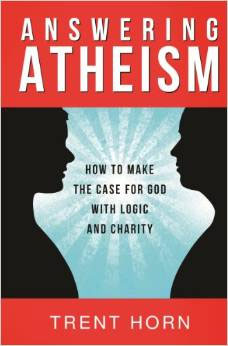[powerpress]
Dr. Matthew Bunson discusses the life, times and teachings of St. Gregory of Narek
 Born: 951 Rshtunik, Vaspurakan, Bagratid Armenia
Born: 951 Rshtunik, Vaspurakan, Bagratid Armenia
Died 1003 Narekavank, Vaspurakan, Armenia
Feast 13 October (Holy Translators day); 27 February (Roman Catholic Church)
For more on St. Gregory of Narek and his teachings visit this excellent website:
“Speaking with God from the Depths of the Heart”
From the Vatican Insider:
Pope Francis has approved the decision of the Congregation for Saints. The Armenian saint was born in 950 AD in present-day Turkey
An Armenian saint has been declared a Doctor of the Church. In last Saturday’s audience with the cardinal Prefect of the Congregation for the Causes of Saints, Pope Francis approved the proposal put forward by the Plenary Session of the Congregation, agreeing for the title of Doctor of the Universal Church to be conferred upon Gregory of Narek.
 St. Gregory, a priest and monk, was born circa 950 AD in Andzevatsik (formerly Armenia, present-day Turkey) to a family of writers. He died circa 1005 in Narek (formerly Armenia, present-day Turkey). His father, Khosrov, was an archbishop. Having lost his mother at a young age, Gregory was brought up by his cousin, Anania of Narek, founder of the local school and village. The saint lived most of his life in the monasteries of Narek (in what was once called Great Armenia), where he taught at the monastic school. He is considered one of Armenian literature’s greatest poets.
 The cult of St. Gregory of Narek will be marked on 27 February in the Roman Martyrology. He will be defined as “monk, doctor of the Armenians, distinguished for his writings and mystic scienceâ€.
 The papal decision comes just weeks before Francis is due to commemorate the centenary of the Armenian massacre on 12 April in St. Peter’s Basilica. The Medz Yeghern as the Armenian massacre is called, took place in 1915.
For more from Dr. Matthew Bunson check out his Discerning Hearts page
Dr. Matthew Bunson, Senior Fellow of the St. Paul Center for Biblical Theology, is one of the United States’ leading authorities on the papacy and the Church.
His books include: The Encyclopedia of Catholic History; The Encyclopedia of Saints; Papal Wisdom; All Shall Be Well; Encyclopedia of the Roman Empire; and The Angelic Doctor: The Life and World of St. Thomas Aquinas; The Pope Encyclopedia; We Have a Pope! Benedict XVI, the first Catholic biography of the Holy Father in the English language; the Encyclopedia of U.S. Catholic History; Pope Francis. His also the editor of OSV’s “The Catholic Answer” magazine.
This entry was posted on Tuesday, March 3rd, 2015 at 11:26 am
You can follow any responses to this entry through the RSS 2.0 feed.
A big “THANK YOU” to Ignatius Press for this excellent 2nd edition of the classic “Dare We Hope That All Men Be 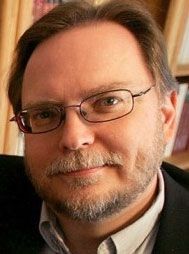 Saved?: With a Short Discourse on Hell” by Catholic theologian Fr. Hans Urs von Balthasar.  The newer edition contains an outstanding forward by Fr. Robert Barron.  The conversation with Mark Brumley sheds even greater light on why this is such an important work.  Mark also corrects the misrepresentations that have been put forward about it’s contents in recent years, including the false characterization of von Balthasar as an advocate of  “universalism”.  An exceptional work!  Once again, a great discussion with Mark Brumley.
Saved?: With a Short Discourse on Hell” by Catholic theologian Fr. Hans Urs von Balthasar.  The newer edition contains an outstanding forward by Fr. Robert Barron.  The conversation with Mark Brumley sheds even greater light on why this is such an important work.  Mark also corrects the misrepresentations that have been put forward about it’s contents in recent years, including the false characterization of von Balthasar as an advocate of  “universalism”.  An exceptional work!  Once again, a great discussion with Mark Brumley.
[powerpress]
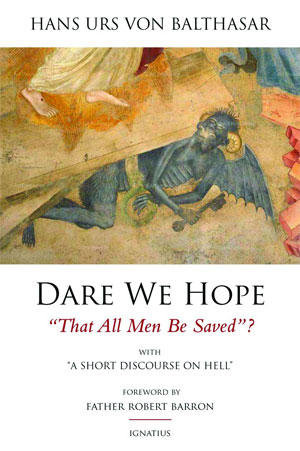 You find the book here
You find the book here
“Truly deep theological questions can rarely be answered with a simple yes or no. Rather, they are approached by the careful theologian, who circles around them, making distinctions, bringing essential aspects to light. The issue of who and how many will be saved is surely one of the thorniest theological puzzles in the Catholic tradition, and I don’t know any theologian-classical or contemporary-who performs the nimble task of bringing out the complexity and profiles of this issue better than Hans Urs von Balthasar. In this short but rich text, you will hear of grace, punishment, mercy, the awful self-absorption of sin-but above all of hope.”
– Fr. Robert Barron, Rector/President Mundelein Seminary/University of Saint Mary of the Lake
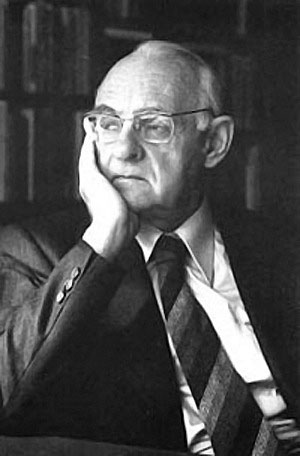
This entry was posted on Monday, February 16th, 2015 at 11:47 am
You can follow any responses to this entry through the RSS 2.0 feed.
How can the Crusades be considered “glorious”? That was the first question that popped up in my mind when I saw “The Glory of the Crusades” come across my desk.  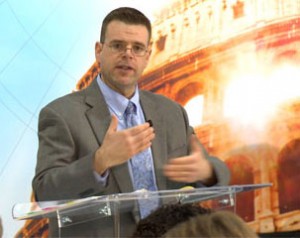 As I found myself caught up in the history unfolding inside the pages of this incredible book, I found that author Steve Weidenkopf approached this subject in an incredibly balanced, engaging and thoughtful way. By far one of the best books I have ever read on the subject. Steve is a lecturer of Church History at the Notre Dame Graduate School of Christendom College and the creator and author of Epic: A Journey through Church History, an adult faith-formation program on the 2,000-year history of the Church. Meticulous researched (just check out the end notes), with little hint of any political agenda, Steve lets history stand on its own solid clear footing. Thank you Catholic Answers for this outstanding book!
As I found myself caught up in the history unfolding inside the pages of this incredible book, I found that author Steve Weidenkopf approached this subject in an incredibly balanced, engaging and thoughtful way. By far one of the best books I have ever read on the subject. Steve is a lecturer of Church History at the Notre Dame Graduate School of Christendom College and the creator and author of Epic: A Journey through Church History, an adult faith-formation program on the 2,000-year history of the Church. Meticulous researched (just check out the end notes), with little hint of any political agenda, Steve lets history stand on its own solid clear footing. Thank you Catholic Answers for this outstanding book!
[powerpress]
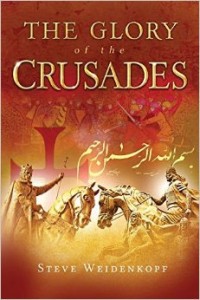 You can find the book here
You can find the book here
The Glory of the Crusades is valuable not only as history but also as a scholarly debunking of centuries of Protestant and Enlightenment distortion of the facts about the West s struggles against militant Islam. –Rev. C. John McCloskey Research fellow, Faith and Reason Institute
This excellent book employs decades of scholarly research to show average readers what medieval historians have long known that popular culture s image of the Crusades has nothing at all to do with the events themselves. Catholics who cringe at the mention of the Crusades will find in this work a surprising and inspiring story of faith. –Thomas F. Madden Director, Center for Medieval and Renaissance Studies, Saint Louis University
This entry was posted on Monday, February 9th, 2015 at 4:12 pm
You can follow any responses to this entry through the RSS 2.0 feed.
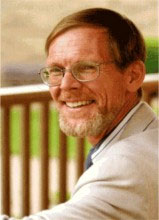 In “St. Francis and Pope Francis: Prayer, Poverty, and Joy in Jesus” Dr. Alan Schreck provides wonderful insights on the connections between Pope Francis and St. Francis. Much has been written about the “Jesuit” nature of the pontificate of Pope Francis, but not as much about the “Evangelical” spirit which unites the hearts of the Francis who lived 900 years ago and the pontiff who claimed his name. Dr. Schreck is an engaging writer, who is capable of not only sharing relevant history of the past, but is gifted in making it come alive and meaningful for our lives today. A fascinating work!
In “St. Francis and Pope Francis: Prayer, Poverty, and Joy in Jesus” Dr. Alan Schreck provides wonderful insights on the connections between Pope Francis and St. Francis. Much has been written about the “Jesuit” nature of the pontificate of Pope Francis, but not as much about the “Evangelical” spirit which unites the hearts of the Francis who lived 900 years ago and the pontiff who claimed his name. Dr. Schreck is an engaging writer, who is capable of not only sharing relevant history of the past, but is gifted in making it come alive and meaningful for our lives today. A fascinating work!
[powerpress]
You can find the book here
From the book description:
Dr. Alan Schreck explores the times and messages of St. Francis of Assisi and Pope Francis, bringing together their shared emphases, including:
- Conversion — their stories are different but their message the same: turn to God
- Prayer – union with Jesus is for everyone
- Poverty – the imitation of Christ heals and restores
- Church – faithfulness is the foundation for renewal
- Mission – the same in every age: share the Gospel
- Joy – the hallmark of Catholic life and possible for us today
This entry was posted on Monday, February 9th, 2015 at 3:22 pm
You can follow any responses to this entry through the RSS 2.0 feed.
[powerpess]
“How the West Really Lost God: A New Theory of Secularization” is a phenomenal book on this subject.
Mary Eberstadt 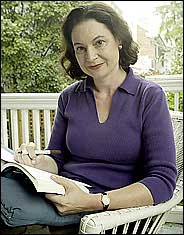 delivers a compelling theory about the decline of Christian religion in the Western world. By the analysis of data on the family,  from pre-Revolutionary France to contemporary culture in the West, she demonstrates how the natural family is the prime nurturing force for Christianity in a society.  When that family structure dissolves, so does the Christian religion in a culture and the rise of secularization is fostered.  While presenting the problem, she also offers hope for the future.  Another  fascinating and provocative read. by Mary Eberstadt!
delivers a compelling theory about the decline of Christian religion in the Western world. By the analysis of data on the family,  from pre-Revolutionary France to contemporary culture in the West, she demonstrates how the natural family is the prime nurturing force for Christianity in a society.  When that family structure dissolves, so does the Christian religion in a culture and the rise of secularization is fostered.  While presenting the problem, she also offers hope for the future.  Another  fascinating and provocative read. by Mary Eberstadt!
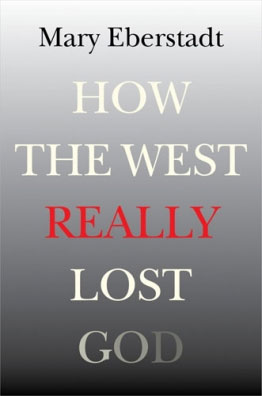 You can find the book here
You can find the book here
— Mary Ann Glendon, author of The Forum and the Tower: How Scholars and Politicians Have Imagined the World from Plato to Eleanor Roosevelt
Tags: catholic, catholic podcast, catholic prayer
This entry was posted on Saturday, January 17th, 2015 at 6:08 am
You can follow any responses to this entry through the RSS 2.0 feed.
[powerpress]
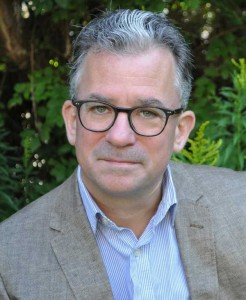 “The Great Reformer: Francis and the Making of a Radical Pope” by Austen Ivereigh is a must read!
“The Great Reformer: Francis and the Making of a Radical Pope” by Austen Ivereigh is a must read!
Shared from a unique vantage point, the insights Dr. Ivereigh provides are incredibly important for our times. He has an engaging writing style that offers vivid historical clarity to the issues and challenges which surround the pontificate of Pope Francis. In this book he beautifully places into context Jorge Mario Bergoglio’s upbringing, the events taking place in Latin America, his formation in Jesuit spirituality, and the Church’s life on the world stage.  When we can appreciate the Holy Father as operating from the role he is most comfortable with, that of a master spiritual director and one who seeks to “discern” God’s will in the classic sense, then many of the “reforms” and the actions surrounding their implementation, make sense. A fascinating conversation and an outstanding book. Don’t miss!
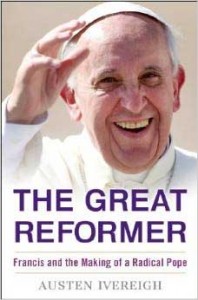 You can find the book here
You can find the book here
“Ivereigh has written the best available chronicle of the formative events in the life and thinking of Jorge Mario Bergoglio and demonstrates how his call for a ‘Church in permanent mission’ extends and deepens the ‘New Evangelization’ proclaimed by St. John Paul II.”—George Weigel, author of Evangelical Catholicism”
“Well written, full of information; this is the best biography of Pope Francis to date.”—Thomas Reese, Senior Analyst, National Catholic Reporter and author of Inside the Vatican: The Politics and Organization of the Catholic Church
“Probing, comprehensive, eminently readable and absorbing . . . In a growing list of books on the first Latin American pope, Ivereigh’s is uniquely well informed and persuasive.”—Charles J. Chaput, O.F.M. Cap., Archbishop of Philadelphia
This entry was posted on Tuesday, January 13th, 2015 at 12:31 pm
You can follow any responses to this entry through the RSS 2.0 feed.
Episode 11– A Century of Cataclysms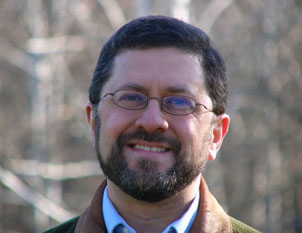
The Resilient Church with Mike Aquilina, offers a fascinating look at the trials and triumphs of the Catholic Church over the past two thousand years. Fast-paced sketches of critical periods in church history give readers perspective on the challenges faced by the church today. Mike Aquilina does not shrink from the realities of the past, including badly behaved leaders and those who betrayed the Lord. Yet he also leaves us all with well-founded hope for the future: God remains faithful in every circumstance and fulfills his promise to remain with his church always. Hosted by Kris McGregor
Also visit Mike’s “Discerning Hearts†page for more audio downloads and information!
Tags: catholic, catholic podcast, catholic prayer, cathollc spirituality
This entry was posted on Thursday, November 20th, 2014 at 4:58 pm
You can follow any responses to this entry through the RSS 2.0 feed.
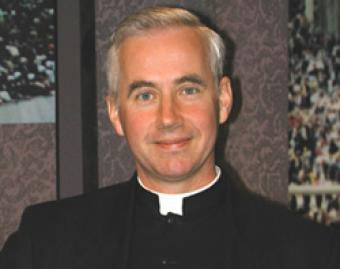 What a delight to discuss our ongoing call to conversion with Fr. C. John McCloskey III especially as demonstrated by the hundreds of lives shared in”The Mississippi Flows Into the Tiber: A Guide to Notable American Converts to the Catholic Church” . The book, which contains a foreword and afterword by Fr. McCloskey, examines the careers and writings of almost five hundred notable converts, containing touching stories of all shapes and sizes. English author John Beaumont, after the success of his initial book “Roads to Rome”, has brought to us an exhaustive, fascinating work that inspires with every page.
What a delight to discuss our ongoing call to conversion with Fr. C. John McCloskey III especially as demonstrated by the hundreds of lives shared in”The Mississippi Flows Into the Tiber: A Guide to Notable American Converts to the Catholic Church” . The book, which contains a foreword and afterword by Fr. McCloskey, examines the careers and writings of almost five hundred notable converts, containing touching stories of all shapes and sizes. English author John Beaumont, after the success of his initial book “Roads to Rome”, has brought to us an exhaustive, fascinating work that inspires with every page.
[powerpress]
You can find the book here
“[A]n inspiring work that covers nearly five hundred eminent American converts who lived from the 17th to the 21st century. In each of these entries, which are in alphabetical order, we find a succinct biography and, when known, one or more causes of conversion, often in the person’s own words. The entries range from part of a page to several pages, with citations from the subjects’ writings. A list of sources is also provided. This book will surely prove to be an invaluable reference work, but more importantly, it is a collection of priceless testimonies, well worth pondering at leisure.”
–Anne Barbeau Gardiner, Culture Wars.
Tags: catholic, catholic podcast, catholic prayer, cathollc spirituality
This entry was posted on Thursday, November 20th, 2014 at 3:29 pm
You can follow any responses to this entry through the RSS 2.0 feed.
I love “The Genesis of Science: How the Christian Middle Ages Launched the Scientific Revolution”! 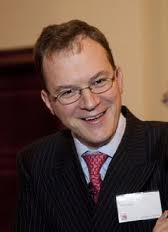 James Hannam has written a fascinating study of the Christian Middle Ages and its foundational importance to the science of our day. He’s brought back the important contributions of half-forgotten thinkers. James demonstrates how they were brought to such a state because of the political agendas of the last 500 years. Why is this important? Because it has everything to do with fundamental Truth, and what is ordered in the Universe. And at the heart, it is faith in God which drives science and it’s healthy functioning in society and culture. It was, and should be today, rooted in the Christian understanding of faith, reason, philosophy, theology and all the other things that round out the wholeness of the human person and the created world. Fascinating stuff indeed!
James Hannam has written a fascinating study of the Christian Middle Ages and its foundational importance to the science of our day. He’s brought back the important contributions of half-forgotten thinkers. James demonstrates how they were brought to such a state because of the political agendas of the last 500 years. Why is this important? Because it has everything to do with fundamental Truth, and what is ordered in the Universe. And at the heart, it is faith in God which drives science and it’s healthy functioning in society and culture. It was, and should be today, rooted in the Christian understanding of faith, reason, philosophy, theology and all the other things that round out the wholeness of the human person and the created world. Fascinating stuff indeed!
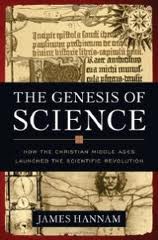 Be sure to visit James’ website.
Be sure to visit James’ website.
Click here to pick up a copy of the book
[powerpress]
Tags: catholic, catholic podcast, catholic prayer, cathollc spirituality
This entry was posted on Sunday, November 16th, 2014 at 7:11 pm
You can follow any responses to this entry through the RSS 2.0 feed.
I love talking with John Salza…tough doctrine and dogma that for most of us is difficult to explain, is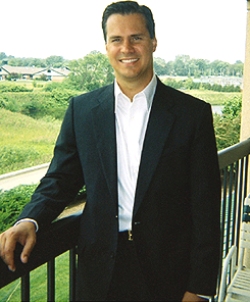 just so easy for John. And he shares his knowledge with all of us…what a gift!
just so easy for John. And he shares his knowledge with all of us…what a gift!
John’s website is www.scripturecatholic.com
[powerpress]
From the book description:
In The Biblical Basis for Purgatory, John  offers the definitive scriptural explanation of this distinctively Catholic doctrine. Building on the teachings of Christ and St. Paul, he shows how the existence of a place of temporal punishment after death is not only a logical extension of what we know about the reality of sin and God’s justice, but is also a supreme expression of God’s love and mercy. Although Purgatory is a place of mercy, its pains are real, and they are severe. This book does more than defend and explain Purgatory it provides a solid plan, drawn from the Church s perennial wisdom for conquering our sins by God s grace, while still on earth.
Tags: biblical basis, catholic, catholic podcast, catholic prayer, cathollc spirituality, john salza, purgatory
This entry was posted on Sunday, November 2nd, 2014 at 12:32 am
You can follow any responses to this entry through the RSS 2.0 feed.
Temporal Consequences for Sin
[powerpress]
Common sense tells us that our sins have consequences.  If after committing a sin, we confess, then God promises to forgive us.  Yet there can still remain what the Church calls a “temporal punishment,†or consequence, for our sin.
For instance, in 2 Samuel 12 after David confesses his sin of adultery, the prophet Nathaniel tells him that the Lord has forgiven him, but nevertheless he will suffer the death of his child as a consequence of his sin.1  Our relationship with God is a personal one and our sins are not just rule violations, but personal offenses that need to be mended.
We can fulfill the temporal punishments for our sins through sincere sorrow for our sins, prayers, sacrifices, and acts of charity.
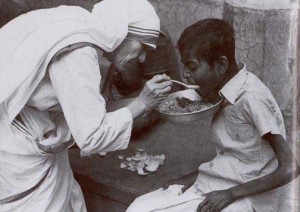
But as part of the Body of Christ, we can also assist in coming to the aid of our brothers and sisters, both living and dead.  This is the basic principle of the Church’s practice of indulgences, and undoubtedly what St. Paul has in mind in Colossians 1:24 where he says, “I rejoice in my sufferings, and complete what is lacking in Christ’s affliction for the sake of his body, the Church.â€Â  Or perhaps it’s put best in 1 Peter 4:8, which simply states, “love covers a multitude of sins.â€
1Â -Â Â 2Â Sam. 12:13-14
Tags: catholic, catholic podcast, catholic prayer, cathollc spirituality, indulgences, sin
This entry was posted on Friday, September 19th, 2014 at 3:01 am
You can follow any responses to this entry through the RSS 2.0 feed.
“Making Sense of Saints: Fascinating Facts about Relics, Patrons, Saint-Making and More” by author Patricia Ann Kasten is a 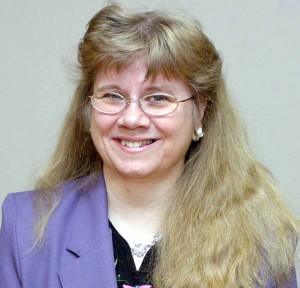 delightful book!  Not only is the canonization process fully illuminated, but Patricia has filled the book with fascinating stories and little known facts.   Everything you ever wanted to know, from the use of relics and holy cards to how miracles are determined can be found in this excellent book brought to us by publisher, Our Sunday Visitor.  A thoroughly engaging read. [powerpress]
delightful book!  Not only is the canonization process fully illuminated, but Patricia has filled the book with fascinating stories and little known facts.   Everything you ever wanted to know, from the use of relics and holy cards to how miracles are determined can be found in this excellent book brought to us by publisher, Our Sunday Visitor.  A thoroughly engaging read. [powerpress] 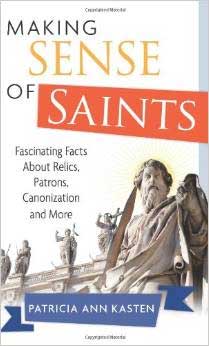 You can find the book here
You can find the book here
You’ll be fascinated and delighted by topics such as: Just Four Easy (Sort of) Steps: The Canonization Process “Doesn’t He Just Glow? Saints’ Symbols “There’s a Man Buried under the Altar!” Relics of Saints “Holy Haloes, God-Made Man!” Saints and Martyrs as Superheroes “Yo-ho-ho!” The Treasure Chest of the Church And much more!
Tags: catholic, catholic podcast, catholic prayer, cathollc spirituality
This entry was posted on Wednesday, September 17th, 2014 at 9:07 am
You can follow any responses to this entry through the RSS 2.0 feed.
Episode 5 – Whether sacred doctrine is a matter of argument? [powerpress]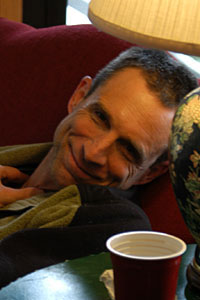
Question 1 Article 8Â Whether sacred doctrine is a matter of argument?
Objection 1: It seems this doctrine is not a matter of argument. For Ambrose says (De Fide 1): “Put arguments aside where faith is sought.” But in this doctrine, faith especially is sought: “But these things are written that you may believe” (Jn. 20:31). Therefore sacred doctrine is not a matter of argument.
Objection 2: Further, if it is a matter of argument, the argument is either from authority or from reason. If it is from authority, it seems unbefitting its dignity, for the proof from authority is the weakest form of proof. But if it is from reason, this is unbefitting its end, because, according to Gregory (Hom. 26), “faith has no merit in those things of which human reason brings its own experience.” Therefore sacred doctrine is not a matter of argument.
On the contrary, The Scripture says that a bishop should “embrace that faithful word which is according to doctrine, that he may be able to exhort in sound doctrine and to convince the gainsayers” (Titus 1:9). 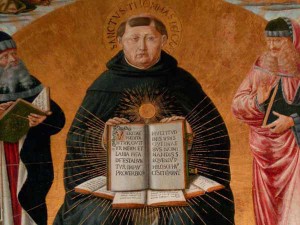
I answer that, As other sciences do not argue in proof of their principles, but argue from their principles to demonstrate other truths in these sciences: so this doctrine does not argue in proof of its principles, which are the articles of faith, but from them it goes on to prove something else; as the Apostle from the resurrection of Christ argues in proof of the general resurrection (1 Cor. 15). However, it is to be borne in mind, in regard to the philosophical sciences, that the inferior sciences neither prove their principles nor dispute with those who deny them, but leave this to a higher science; whereas the highest of them, viz. metaphysics, can dispute with one who denies its principles, if only the opponent will make some concession; but if he concede nothing, it can have no dispute with him, though it can answer his objections. Hence Sacred Scripture, since it has no science above itself, can dispute with one who denies its principles only if the opponent admits some at least of the truths obtained through divine revelation; thus we can argue with heretics from texts in Holy Writ, and against those who deny one article of faith, we can argue from another. If our opponent believes nothing of divine revelation, there is no longer any means of proving the articles of faith by reasoning, but only of answering his objections—if he has any—against faith. Since faith rests upon infallible truth, and since the contrary of a truth can never be demonstrated, it is clear that the arguments brought against faith cannot be demonstrations, but are difficulties that can be answered. (more…)
Tags: catholic, catholic podcast, catholic prayer, cathollc spirituality
This entry was posted on Monday, September 15th, 2014 at 11:18 am
You can follow any responses to this entry through the RSS 2.0 feed.
“Answering Atheism: How to Make the Case for God with Logic and Charity” is a compassionately engaging and 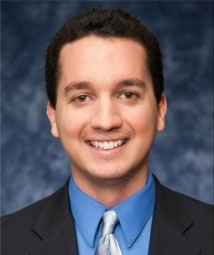 intellectually-savvy response to the attacks on the existence of God.  Trent Horn is a welcomed fresh voice in the forum of Catholic apologetics.  Well-researched and thoughtfully presented, this book is a must have for all who wish to defend the faith, but it’s also for those who wish to know and grow in it as well.  In our conversation, we touch on many of the enter points for dialogue which we encounter everyday in discussions with family, friends, co-workers, and how to approach those times of engagement in a Christ-like manner.  A highly recommended book by Trent and, his publisher, the good folks at “Catholic Answers”.
intellectually-savvy response to the attacks on the existence of God.  Trent Horn is a welcomed fresh voice in the forum of Catholic apologetics.  Well-researched and thoughtfully presented, this book is a must have for all who wish to defend the faith, but it’s also for those who wish to know and grow in it as well.  In our conversation, we touch on many of the enter points for dialogue which we encounter everyday in discussions with family, friends, co-workers, and how to approach those times of engagement in a Christ-like manner.  A highly recommended book by Trent and, his publisher, the good folks at “Catholic Answers”.
[powerpress]
You can find the book here
Answering Atheism gets high grades on the three R’s: It is readable, reasonable, and researched. Its defense of the cosmological argument has depth and detail, yet it is not so technical that you need to take a philosophy course to comprehend it. —Peter Kreeft, professor of philosophy, Boston College
I’ve read many works of popular apologetics; this is the best! –Stephen Bullivant, editor, The Oxford Handbook of Atheism
Tags: catholic, catholic podcast, catholic prayer, cathollc spirituality
This entry was posted on Monday, September 1st, 2014 at 9:45 am
You can follow any responses to this entry through the RSS 2.0 feed.
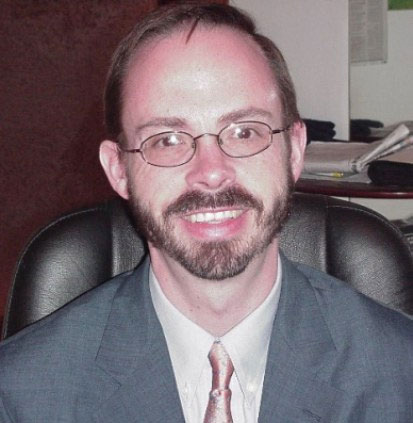 Chilling and very sobering is the story communicated in “The Global War on Christians: Dispatches from the Front Lines of Anti-Christian Persecution” written by veteran Vatican reporter John L. Allen, Jr.  It is a wake up call for Christians in the West, who for the most part enjoy a relatively safe existence compared to our brothers and sisters in the faith who live in an incredibly dangerous world. John Allen chronicles with exhaustive statistics, from numerous countries, the scope of “martyrdom” and persecution that exists for the 21st century Christian. Imprisoned, harassed, attacked, and killed because of their faithful expression of Christianity, Christians around the world are targets. He exposes many of the myths surrounding the issue such as “It’s all about Islam”, “No one saw it coming”, “It’s only persecution if the motives are religious” and more. Why are we not hearing about this in the secular media, but more importantly, why are we not hearing about this in our own churches? The end to the deafening silence must come now. An important work not to be missed.
Chilling and very sobering is the story communicated in “The Global War on Christians: Dispatches from the Front Lines of Anti-Christian Persecution” written by veteran Vatican reporter John L. Allen, Jr.  It is a wake up call for Christians in the West, who for the most part enjoy a relatively safe existence compared to our brothers and sisters in the faith who live in an incredibly dangerous world. John Allen chronicles with exhaustive statistics, from numerous countries, the scope of “martyrdom” and persecution that exists for the 21st century Christian. Imprisoned, harassed, attacked, and killed because of their faithful expression of Christianity, Christians around the world are targets. He exposes many of the myths surrounding the issue such as “It’s all about Islam”, “No one saw it coming”, “It’s only persecution if the motives are religious” and more. Why are we not hearing about this in the secular media, but more importantly, why are we not hearing about this in our own churches? The end to the deafening silence must come now. An important work not to be missed.
[powerpress]
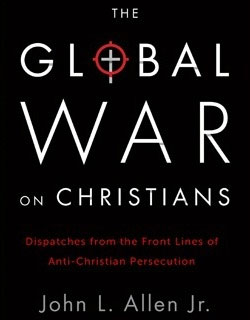 You can find the book here
You can find the book here
From the book description:
From Iraq and Egypt to Sudan and Nigeria, from Indonesia to the Indian subcontinent, Christians in the early 21st century are the world’s most persecuted religious group. According to the secular International Society for Human Rights, 80 percent of violations of religious freedom in the world today are directed against Christians. In effect, our era is witnessing the rise of a new generation of martyrs. Underlying the global war on Christians is the demographic reality that more than two-thirds of the world’s 2.3 billion Christians now live outside the West, often as a beleaguered minority up against a hostile majority– whether it’s Islamic fundamentalism in the Middle East and parts of Africa and Asia, Hindu radicalism in India, or state-imposed atheism in China and North Korea. In Europe and North America, Christians face political and legal challenges to religious freedom. Allen exposes the deadly threats and offers investigative insight into what is and can be done to stop these atrocities.
Tags: catholic, catholic podcast, catholic prayer, cathollc spirituality
This entry was posted on Monday, August 11th, 2014 at 10:16 am
You can follow any responses to this entry through the RSS 2.0 feed.

